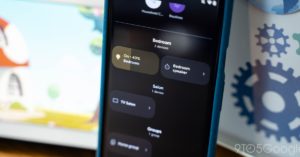As demonstrated by Fit for Android’s camera-based heart and respiratory rate tracking, one component of Google’s Health strategy involves using current devices to gather health information. For Android and/or Pixel, Google is currently testing snore and cough detection on-device.
Regarding APK Insight: We’ve decompiled the most recent version of an app that Google put on the Play Store in our APK Insight post. When we decompile these files—known as APKs for Android apps—we can find numerous lines of code that allude to potential future features. Remember that Google might or might not ever deploy these features, and our understanding of what they are might be limited. However, we’ll strive to give those that are closer to completion a chance to demonstrate how they’ll seem if they do ship. Read on with that in mind.
hit version 2.0 this week in support of the introduction of a fresh study on digital wellbeing. A Sleep Audio Collection research that is only accessible to Google workers is revealed via strings in that release.
You must be a Full Time Googler with an Android phone to participate in this study. No more than one adult sleeper in the same room who is not employed by a rival business is necessary for the study’s environmental requirements.
In order to give users useful insight into their sleep, Google says that its Health Sensing team is actively working to bring a sophisticated array of sensing technologies and algorithms to Android smartphones. This audio collection helps to accomplish this goal by offering the information needed to create, test, and refine such algorithms.

These algorithms for tracking nocturnal coughing and snoring will be implemented as a bedside monitoring function for Android smartphones that protects user privacy.
It’s unclear if snore and cough detection will be a Pixel-only function or a feature available to all Android users. It might at the very least make its appearance on the Pixel first. It’s unclear which app will house this feature, while Google Fit and Clock are the obvious choices.
Google first created a Bedtime hub in Google Clock in 2020, which integrates with Digital Wellbeing to calculate the amount of time spent in bed. Giving the Clock app access to motion and light detection is required for this. Fitbit currently has Snore and Noise Detect available on the Sense and Versa 3, and the second-generation Nest Hub also includes a similar feature.


Another hypothesis to take into account is that this functionality will be used by the future Nest Tablet in its rumored Smart Display/docked (through pogo pins) combo. Nevertheless, if Google made this available on all Android smartphones, it would reach more users.
FTC: We employ automatically earning affiliate connections. More.
Check out 9to5Google on YouTube for more news:







